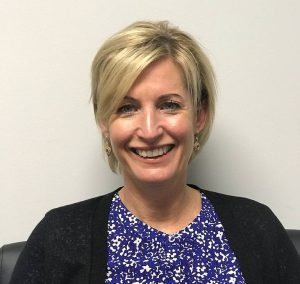
by Mary Beth De Bord, JD, lawyer, CURESZ Board member and leader of Friendsz (pictured here) and Bethany Yeiser, CURESZ President
One in five people will develop a mental illness at some point in life. High school and college students (approximately age 15-25) have increased risk for developing more serious mental illness including schizophrenia, bipolar disorder, depression and anxiety. Typically, students know very little about these mental illnesses, which are in fact treatable brain disorders, especially with early intervention.
Because high school and college students are at the age of risk, they must be aware that some of their peers will struggle. For example, at a high school with six hundred students, one percent, or about 6/600 will develop schizophrenia and 10/600 with bipolar disorder. A much larger number (up to 200/600) will develop depression and/or anxiety.
When a student suspects that his or her peer may be struggling, where do they begin, what signs should they watch for? What is the best way to help?
The CURESZ Foundation encourages students (as well as their teachers, counselors and other adults in their lives) to apply the principles of H.O.P.E., which stands for Hear, Observe, Process, Engage.
The first step in recognizing if a young person is struggling with a neuropsychiatric disorder, aka, mental illness is to listen. Subtle clues may prove to be very important.
Often, people with schizophrenia say things that may sound illogical. They may be having delusions in the form of persistent false beliefs, such as believing that someone plans to harm them or that they are being watched or that the TV is talking to them or about them. They may also be experiencing hallucinations, hearing voices or seeing things that do not actually exist.
When you sit down with your friend who may be struggling, hearing what they are saying, and showing that you care, can be comforting and can make a big difference in convincing them to seek medical help from a psychiatric physician.
Second, observe your friends’ behavior. Your peers may start to distance and isolate themselves or become extremely agitated. Abnormal changes in mood (depression or irritability) may be an indicator of schizophrenia or bipolar disorder. Withdrawal, lack of interest in fun activities a person used to love and neglecting personal hygiene may be symptoms of depression or schizophrenia.
Third, process. Recovery from severe mental illness is a long journey. As your friend begins treatment, be available talk to him or her about what they are experiencing. Encourage the young person to reach out to a trusted counselor, therapist or physician for appropriate care. You should also report the symptoms to a trusted adult or counselor. Early intervention is key to a successful recovery.
Finally, engage. To the extent you can, provide support to allow your friend to fully engage and embrace a treatment plan which works for them. As your peer engages in support services with a support team, encourage him or her along the journey. Ask if the medication is working well, and be interested in their goals and plans for the future. Having support is essential to your peer’s recovery.
The CURESZ Foundation offers students information that is useful as friends and family practice HOPE. The foundation offers educational resources about signs and symptoms of schizophrenia, as well as related disorders and comorbidities such as bipolar disorder, anxiety and depression. We also offer information about underutilized and cutting-edge medications for schizophrenia. We highlight individuals who have successfully recovered from schizophrenia and are currently thriving. The CURESZ Foundation website has relevant videos and provides contact information for excellent psychiatrists throughout the country.
If your friend is struggling with unusual behavior due to a psychiatric brain disorder, you can write the CURESZ Foundation to ask for a second opinion from one of our CURESZ physicians.
As you practice the principles of HOPE, we would also encourage you to consider founding a CURESZ on Campus club at your high school, college or university. CURESZ Clubs offer useful information about a wide variety of mental illnesses and their warning signs. They also offer information on career paths in mental health, such as what it takes to become a psychologist, a psychiatrist or nurse practitioner. The Clubs bring in speakers on a regular basis (recovered students, professors, other guests), organize in person events and share the CURESZ Foundation’s mission with peers, teachers, counselors and professors. The Club meetings also provide a safe space for students to convene and share what is going on in their personal lives.
Do not underestimate how much good you can do in the lives of others. Everyone needs friends, especially friends who are empowered through education to recognize the emergence of mental illness and to HOPE. Those struggling with a mental illness tend to isolate themselves and break away from family and friends when they need them the most.
Students should also be aware that if their initial treatment plan is not working, there are other medication options. Young people must proactively work with their doctor to achieve the highest level of recovery possible. Additionally, young people who struggle with brain disorders need to make plans for the future such as returning to school, getting a part-time or full-time job, or volunteering. The goal should always be to rebuild your life. Through friendship, recovery becomes a more achievable goal.

